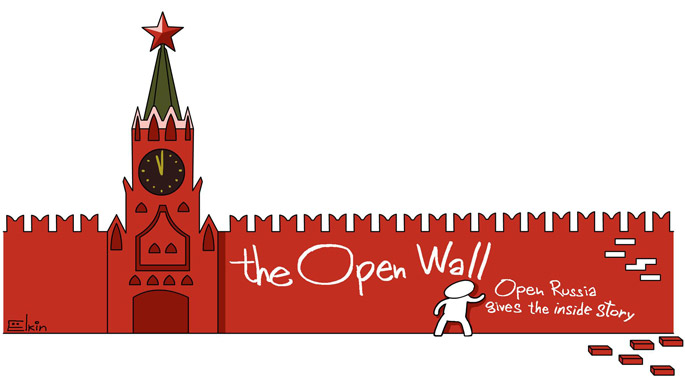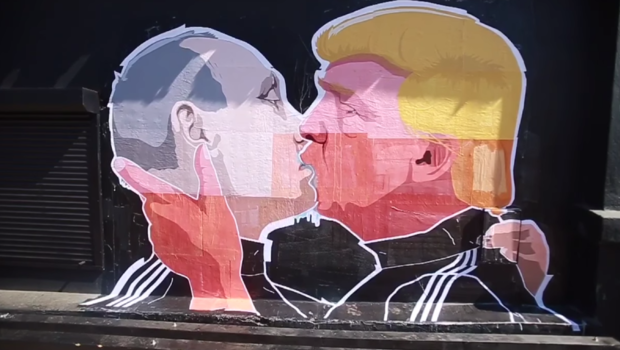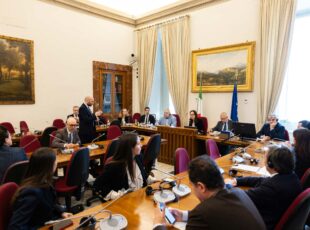National Unity trumps all

National Unity trumps all
We almost forgot about it, sorry, but 4 November marked 12 years of Russia’s Day of National Unity. Still, better late than never – much like the concept of national unity…

The Kremlin created the Day of National Unity. But why is the concept of national unity so important to the regime? Is it important to Russians in general? Does it have any meaning at all?
In truth (a commodity in short supply), Russians are still in the dark about this holiday, which harks back to a victory over the Poles back in the seventeenth century. Like the day-off it replaced, its main selling point in the eyes of the public is the chance to stay in bed.
If you think about it, banging on about national unity would suggest that a nation is divided; that it’s been at war with itself. But that isn’t what national unity means to the Kremlin; it’s got nothing to do with healing any wounds. No, in recent years, Russians have been urged to unite in the face of Western sanctions, NATO and the arch-enemy, the United States. At least, that is how it was until 9th November; now it’s more complicated – about which more later.
So let’s examine how successful all that national unity propaganda has been.
Today’s latest opinion polls help shed light on the issues on which Russians really do come together, and whether this much-talked about unity exists beyond Putin’s approval rating.
On the last day of October, Levada Center published a survey on Russian attitudes to the Syrian conflict. 48% said that today’s strained relations between Russia and the West over Syria could escalate into nothing short of a third world war. Since Russians get the bulk of their information about bombed Syrian schools, hospitals and residential areas from Kremlin propagandists (who blame everything on the West), 52% of respondents showed a positive response to the Russian air strikes on Syria. Only 26% delivered a negative verdict.
Levada Center deputy director Alexei Grazhdankin believes that the growing confrontation between the West and Russia on Syria is naturally driving Russian jingoistic sentiment: “The developments in Syria are stoking the risk levels, but most people believe that this line should be continued, despite the reaction of the West.”
Russia-Ukraine relations were the subject of another recent survey by Levada Center. On this issue, Russians managed to show a lot more “unity,” primarily due to the still very high (83%) level of support for the annexation of Crimea.
However, also revealing was the percentage of respondents who have grown weary of the Ukraine topic over the years: 62% of those surveyed “do not follow at all” or “follow without particular interest” the goings-on next door. Political scientist Konstantin Kalachev is not surprised: “Without new casualties there’s no drama. All the news hooks have come and gone. And it’s not in Russia’s interests to aggravate the military situation. On the contrary, the Kremlin is trying to change its tune on Ukraine. It wants to mend the broken record.”
Yet judging by opinion polls, the overwhelming majority of Russians are internally braced for a renewed flare-up in eastern Ukraine; the situation there is described as “tense” and “critical/explosive” by 88% of respondents. This result, indicating how much Russians fear the worst, is dangerous in itself, forcing the Kremlin to keep rethinking its interests, with a view to a new war in Ukraine.
The Kremlin-backed Public Opinion Foundation (FOM) recently sounded out a few other aspects of national unity. According to an FOM poll published in October, 79% of young Russians have never had any desire to take part in a demonstration, rally or other political action. The flip side is that only 48% of young people believe that the country is moving in the right direction.
Oddly enough, the main source of information for Russian youth (according to FOM) is still television. But whereas 77% of respondents watch TV, only 36% actually trust it. The paradox is nothing new. The late sociologist Boris Dubin uncovered it back in 2010: “You can talk about the passive majority that doesn’t trust anything, including TV, but psychologically they’re dependent on it. That’s the remarkable nature of dependence without trust and unity, without solidarity.”
Here’s an eye-popping number to finish with: the Kremlin-friendly Russian Public Opinion Research Center (VTsIOM) says that only 19% of Russian people are proud of their standard of living, while 76% display no particular self-esteem on that score. You would have thought they would want to keep that number a secret, but it’s publicly available on their website. It even appears under the title, with no apparent irony, “Homeland: say it with pride!”
So there you have it: all you ever wanted to know about the Day of National Unity, but apparently couldn’t be bothered… Only, here’s a question: if the Kremlin has only managed to unite the nation against an outside enemy, what happens when the American President-elect keeps saying how much he wants to be friends?



